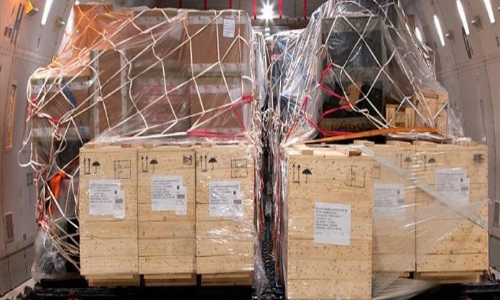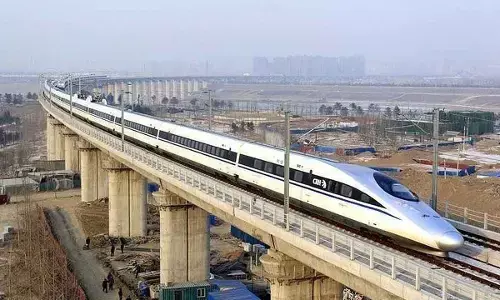Air cargo operations need to automate systems, streamline processes: report

The air cargo industry in India continues to be dominated by paperdriven legacy systems and procedures which are timeconsuming and expensive to comply with, according to a new report by global consulting major Deloitte and industry body FICCI
Foreign carriers like Emirates, Qatar, Cathay Pacific and Lufthansa currently dominate international air cargo space in the country.
New Delhi: The air cargo industry in India continues to be dominated by paper-driven legacy systems and procedures which are time-consuming and expensive to comply with, according to a new report by global consulting major Deloitte and industry body FICCI.
Among the major impediments are lack of a single-window mechanism for regulatory clearance, mandatory inspection rather than a declaration of cargo, cumbersome information requirements and approval procedures for non-scheduled freight operations by the Directorate General of Civil Aviation.
Simplifying and integrating compliance processes will enable the air freight sector to realise its potential, said the report titled 'Indian aviation: Bracing to ride out headwinds.'
"Clearly, there is a need to expedite some of the technology initiatives to not just automate all information systems but also to streamline redundant processes and regulations."
On the other hand, the industry must expand its reach by tapping unserved regions with smaller freighters and connecting them to mainland hubs.
"There is a need to integrate air cargo infrastructure with the country's overall logistics infrastructure -- with the likes of multi-modal logistics hubs specifically catering to airports -- and create hubs for trans-shipment of air cargo by simplifying processes," said the report.
The industry should also provide ancillary infrastructure to shippers across the entire value chain for end-to-end connectivity. This should ideally include adequate facilities for storage and other value-added services.
Foreign carriers like Emirates, Qatar, Cathay Pacific and Lufthansa currently dominate international air cargo space in the country.
While the Indian carriers seem to have missed this opportunity, the government could explore certain policy initiatives to support them in establishing reliable freighter operations with adequate frequencies until these routes become self-sustainable.




















